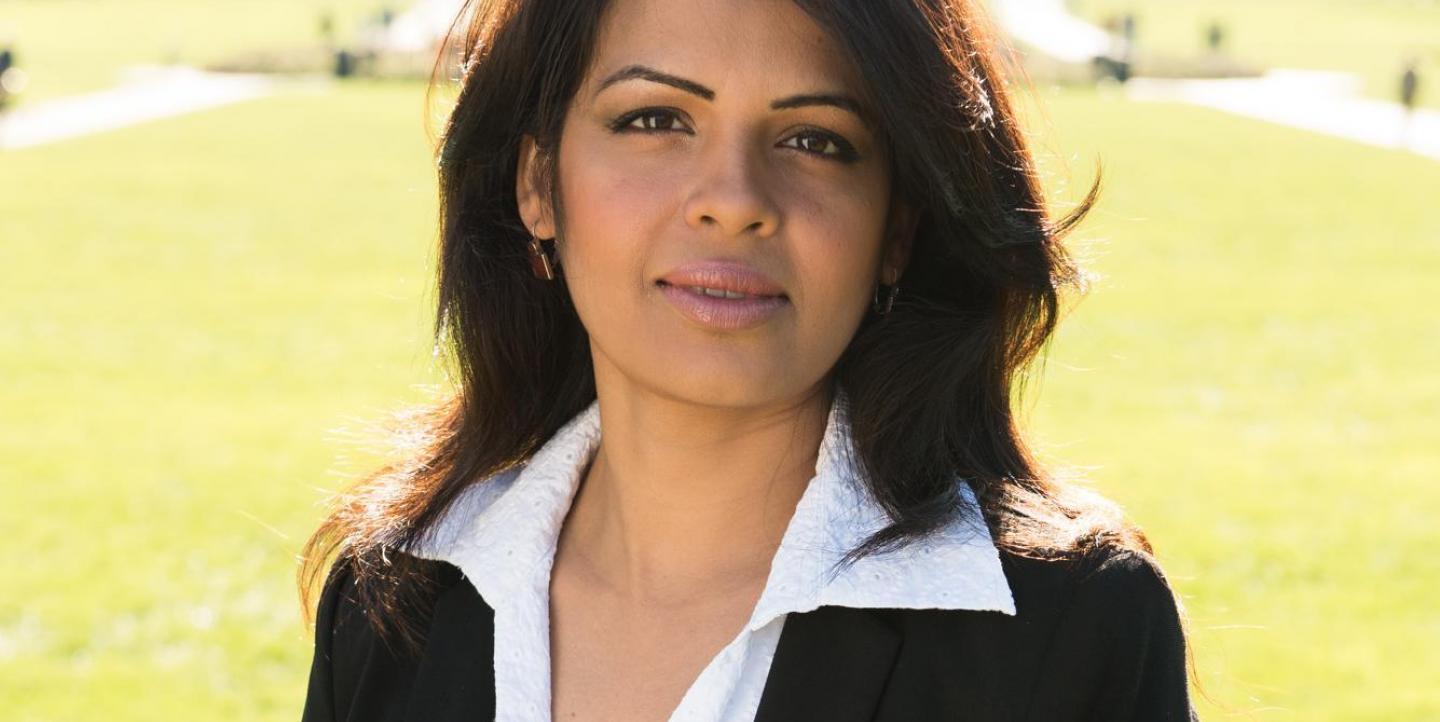Each month, IJNet features an international journalist who exemplifies the profession and has used the site to further his or her career. If you would like to be featured, email a short bio and a paragraph about how you have used IJNet here.
Journalist of the month Najia Ashar, editor of news strategy and planning at AAJ News TV, has had a career filled with formative experiences.
The Pakistani broadcast journalist has covered some of Pakistan’s most significant historical events, including the country’s elections, the 2011 killing of Osama bin Laden and the 2012 attack on Malala Yousafzai.
But in 2014, a completely new opportunity arose in the form of a John S. Knight Journalism Fellowship at Stanford, which she learned of on IJNet’s opportunities section. During her year-long fellowship, Ashar worked to develop a practical, user-friendly safety guide for Pakistani journalists using visualizations and animations.
“Reporting in Pakistan has become far more dangerous in recent years, yet there are no free and easy to use ways for journalists to get advice and tips to minimize risk and protect themselves,” she said at the start of her fellowship. “My aim is to create a free and safe environment for young journalists and media workers in both conflict and non-conflict zones and to figure out ways in which technology can help make the practice of journalism safer.”
Ashar spoke with IJNet about the lessons she learned during her Knight fellowship:
IJNet: Tell us about your Knight fellowship. What challenges did you face in completing your project?
Najia Ashar: As a broadcast journalist in Pakistan, I have worked on many sensitive stories and projects, but the most important and exciting project started when I decided to apply for the JSK fellowship in 2014. To get the fellowship, I had to submit a proposal for a journalism-related project — a journalism challenge. The broader concept was related to journalists’ safety and security, but it was a complex issue to tackle with lots of details. In the beginning, I had no idea how my approach would answer the journalism challenge I was trying to solve. The fellowship helped me to go through the phases of the process, i.e. exploration, refinement and the end result. So I ended up creating safety training materials for journalists that are very quick and easy to understand. Upon my return to Pakistan, I conducted many safety workshops using the unique material and methods I created during the fellowship.
You've covered many important events, including elections in Pakistan and the attack on Malala Yousafzai in 2012. Did you pursue these stories yourself? What is it like to cover major stories like these?
Yes, I have reported and covered various live and historical events. It has always been exciting, telling the world the stories they need to know. Covering elections in Pakistan was a great experience. I think I am fortunate that I got to be a part of that, as I benefited greatly from seeing it all in action and reporting on it. It helped me develop critical thinking skills about political issues and dynamics for finding good political stories.
On the other hand, I got the bad news about the attack on Malala while I was sitting in the studio, and I was the one who had to break this news live. It was a painful moment for me, as I had already interviewed her a few months back when she visited our Karachi studios.
How has IJNet benefited your career?
I am a regular reader of IJNet, as it provides professional guidance to journalists. Whether it is editorial and social media strategy or media training and opportunities for journalists, it helps me find journalism solutions.
What lessons did you learn during your JSK fellowship?
The JSK journalism fellowship has changed my life in many ways. It helped me increase my perseverance and determination and maximized my motivation. During my time as a JSK fellow, I learned many things, but the most important thing I learned was how to embrace failure as the surest path to success.
What advice would you give to other journalists?
In this digital era, the media isn't the only thing changing. The nature of our work itself is changing. More and more, journalists are becoming multi-skilled workers. The future of journalism literally depends on the ability of its practitioners to adapt to new trends on social media and to connect with the audience as [they] consume content in different ways. So I believe journalists need to change, as well.
This interview has been edited.
Main image courtesy of Najia Ashar's Twitter.

